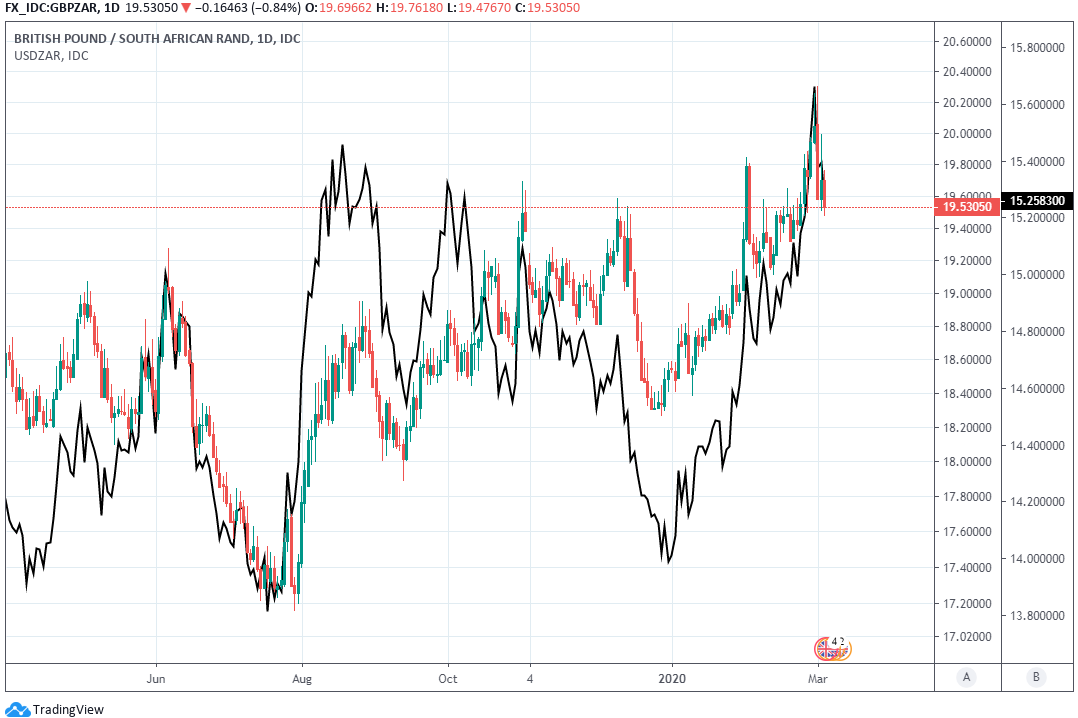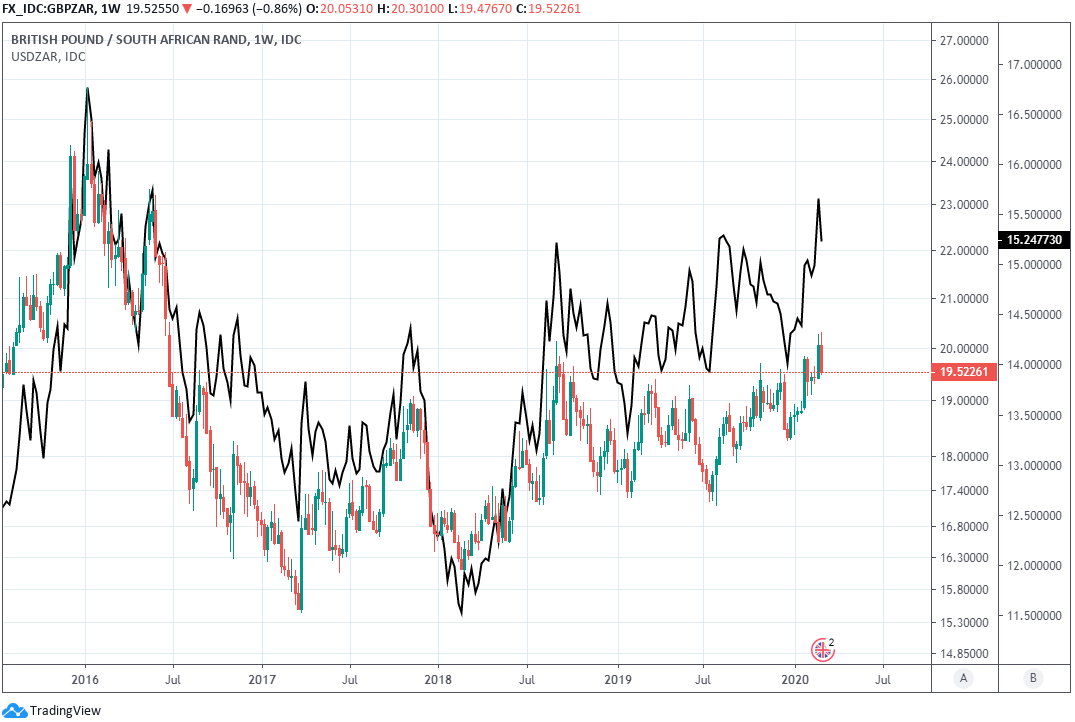South African Rand Recovers with Sentiment but Forecasts at Risk after Growth Disappointment
- Written by: James Skinner

Image © Adobe Images
- GBP/ZAR Spot Rate: 19.52 down -1.08% today
- Indicative bank rates for transfers: 18.84-18.97
- Indicative broker rates for transfers: 19.23-19.35 >> find out more about this rate.
South Africa's Rand rose broadly Wednesday, helping reverse almost all of last week's increase in the Pound-to-Rand rate while weakness in the British currency also weighed on the exchange rate although some analysts are warning that this newfound support for the emerging market unit might not last for long.
The Rand is roaring back from multi-year lows against the Dollar and Pound even as investors digest the possible implications of official data that showed South Africa sliding into its second recession in as many years during the final quarter. The economy shrank -0.5% last quarter when markets were looking for only a 0.1% decline, which made for an annualised contraction of -1.4%.
South Africa's Rand was bid higher alongside other emerging market units and risk assets in general, including the stocks that suffered their worst losses since the financial crisis last week, after the Federal Reserve (Fed) cut U.S. interest rates 50 basis points to 1.25% in an effort to support the domestic and global economies as they grapply with the viral pneumonia that's spreading in more than 70 countries outside China and has left no continent untouched.
"EM currencies benefited significantly from the Fed's rate cut and the G7 signal for a common fight against the Covid-19 virus. But before that, disappointing data on South Africa's gross domestic product (GDP) caused ZAR losses," says Elisabeth Andreae, an analyst at Commerzbank. "The South African economy shrank surprisingly sharply in the final quarter of 2019, sliding into recession. The outlook is far from rosy, especially with regard to Moody's rating review at the end of March. With global risk-off sentiment the rand is at least temporarily at risk of more pronounced losses than we have outlined so far."
Above: Pound-to-Rand rate shown at daily intervals alongside USD/ZAR rate.
Andreae and the Commerzbank team have a bullish outlook for the Rand and are looking for it to push the U.S. Dollar back comfortably below the 15.0 handle by year-end, and for the Pound-to-Rand rate to fall back to 19.40.
But they've warned this week that evolving risks could see both exchange rates trading above anticipated levels in the short-term. Commerzbank has been looking for the USD/ZAR rate to end the quarter around 15.0 but the exchange rate was quoted at 15.23 Wednesday, while the Pound-to-Rand rate was trading at 19.49 but is forecast to hit 20.12 by month-end.
"In view of the Finance Minister’s budget presentation in February and the recent disappointing GDP data it seems only a matter of time before Moody’s will downgrade the country's sovereign rating to junk status," Andreae says. "The rand is at risk of more pronounced losses than we had so far assumed if Moody’s downgrades its rating to junk at the end of March and the current risk-off sentiment continues. Despite recent interventions by global central banks and positive market reactions."
Above: Pound-to-Rand rate shown at weekly intervals alongside USD/ZAR rate.
Tuesday's GDP has come close to eliminating any remaining hope of South Africa being able to retain its 'investment grade' credit rating given that a shrinking economy will automatically increase the already-too-high debt-to-GDP ratio and could put upward pressure on the budget deficit. Both the deficit and debt ratio are already at levels that rating agencies find objectionable and the economic contraction may not be over yet.
Moody's, the last agency to still have South Africa as an 'investment grade' borrower, is expected to announce its next decision on March 27 and if the rating is cut to 'junk' then it could trigger outflows from the Rand because some fund managers who already hold South African bonds would automatically be prevented from owning them. In other words, some fund managers could be forced to sell their bonds.
Commerzbank says Moody's could decide to delay its credit rating decision until November given fragility in financial markets, which have been buffeted repeatedly in recent weeks by the increasing spread of coronavirus outside of China, and although such a measure wouldn't necessarily prevent a downgrade at a later date it could buy time for the South African government to get the economy back on its feet and the public finances in better order.
"Something similar happened in 2018 shortly after President Cyril Ramaphosa took office. The time until November might well help the rand if Covid-19 is being kept at bay thanks to the global efforts and global risk sentiment improves. In a more EM positive environment the depreciation of the rand as a result of the rating downgrade and South Africa’s omission from the WGBI is likely to be more moderate. That is particularly true if the government were to use the time to implement further reforms. Potential ZAR investors would no doubt honor that," Andreae says.






